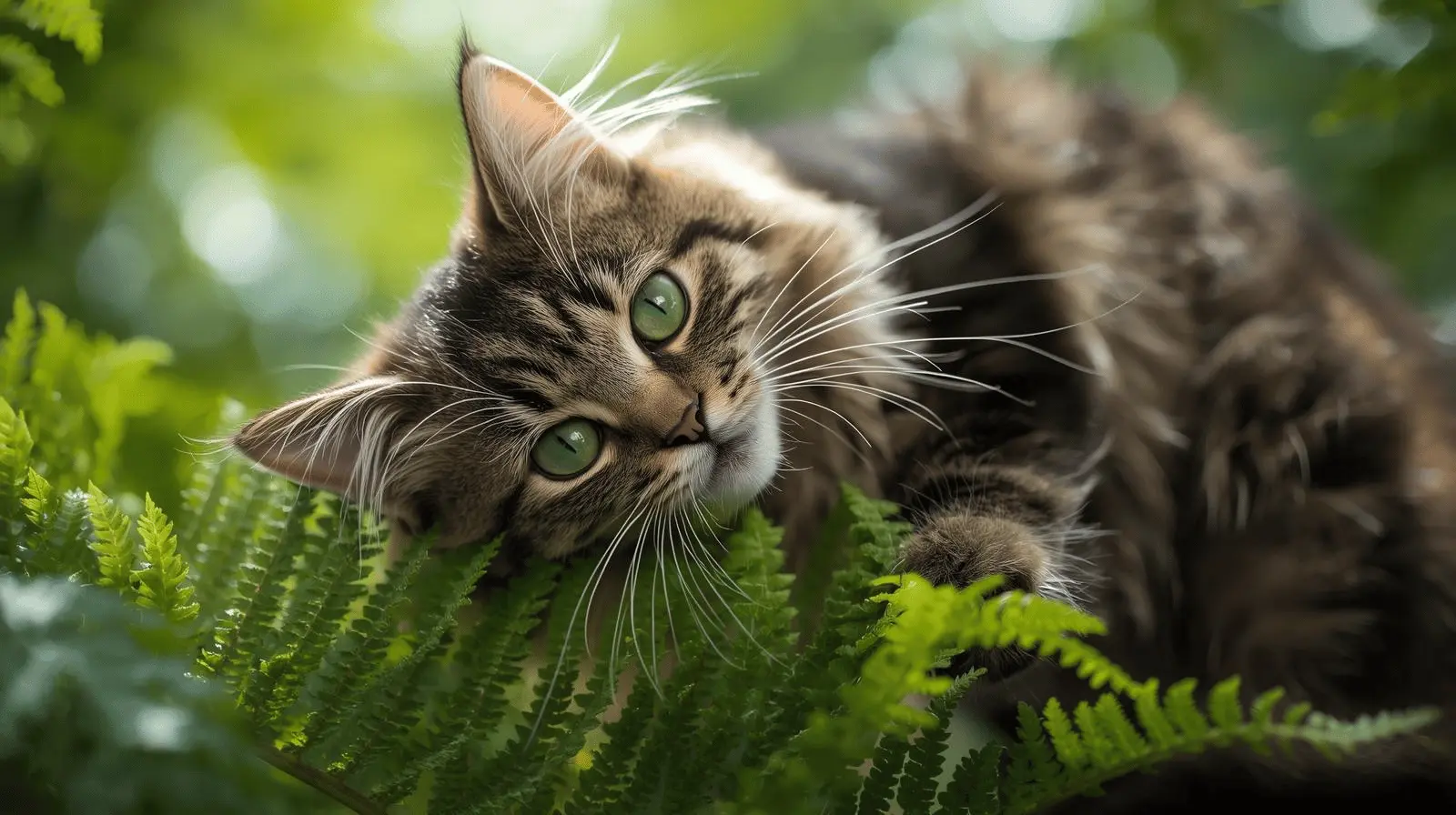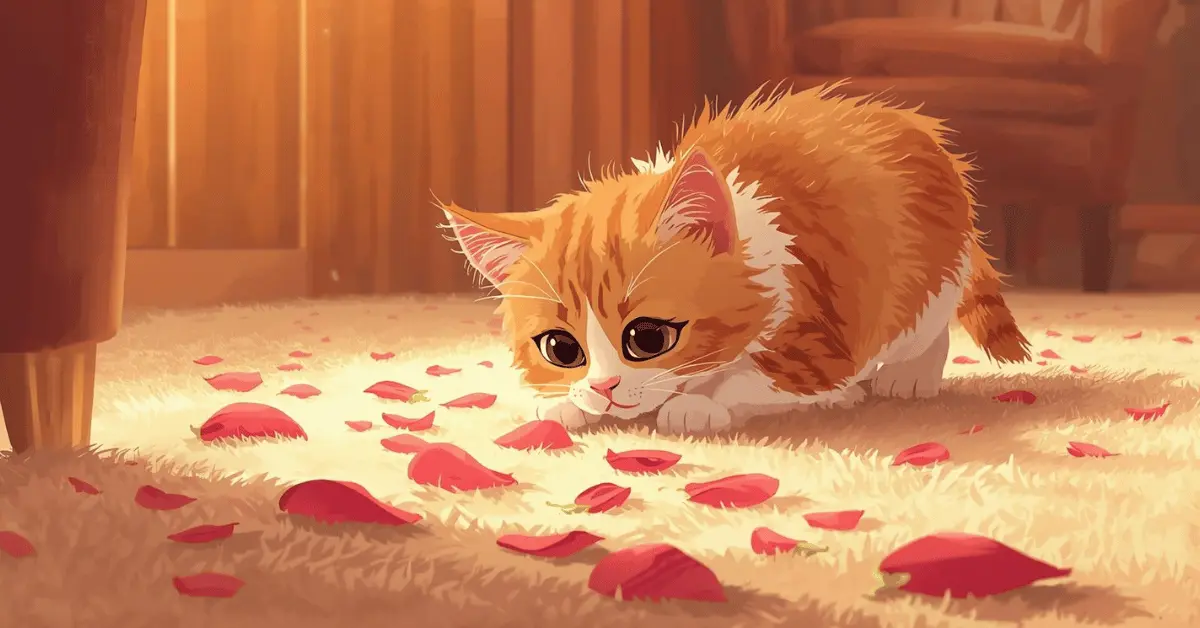Roses are timeless symbols of love and beauty, often gracing homes, gardens, and floral arrangements. But for cat owners, the question arises: are rose petals toxic to cats? It’s a valid concern, especially since many plants can be harmful to pets.
Understand Rose Toxicity in Cats
Before panicking if your cat chews on a rose petal, it’s important to know the facts. According to the ASPCA (American Society for the Prevention of Cruelty to Animals), roses (Rosa species) are non-toxic to cats.
What Happens if Cats Eat Rose Petals?
While rose petals themselves are not poisonous, they may cause mild digestive upset if eaten in large amounts. Some common symptoms include:
- Vomiting
- Diarrhea
- Drooling
- Lack of appetite
Most cats won’t eat more than a nibble or two, but sensitive stomachs may still react.
The Hidden Dangers of Roses
The greatest risk from roses isn’t the petals—it’s the thorns. Sharp rose thorns can injure a cat’s mouth, paws, or digestive tract if swallowed.
Related Posts
Identifying Safe vs. Unsafe “Roses”
Not all flowers with “rose” in the name are safe. Some popular varieties commonly mistaken for safe roses are actually toxic to cats.
Safe Roses
- True roses (Rosa spp.)
- Miniature roses (Rosa chinensis minima)
Toxic Plants with “Rose” in Their Name
- Christmas Rose (Helleborus niger): Highly toxic, can cause vomiting, lethargy, and heart issues.
- Desert Rose (Adenium obesum): Contains toxic sap that can harm the heart.
- Primrose (Primula spp.): Can irritate the digestive system.
Always double-check plant names before bringing them into your home.
Why Cats Chew on Flowers

If your cat is constantly drawn to flowers and plants, there’s usually a reason. Understanding their behavior can help prevent future risks.
Common Reasons Cats Chew on Plants
- Curiosity: Cats explore the world with their mouths.
- Playfulness: Dangling petals resemble toys.
- Boredom: Lack of stimulation may lead to chewing.
- Dietary needs: Some cats crave greenery for added fiber.
Offering safe alternatives like cat grass or catnip may redirect their attention from household flowers.
Symptoms to Watch if Your Cat Eats Roses
While rose petals are generally safe, it’s best to monitor your cat after ingestion. Seek veterinary advice if you notice any of the following:
- Persistent vomiting or diarrhea
- Signs of pain or discomfort
- Bleeding in the mouth or paws (possible thorn injury)
- Refusal to eat or drink
Prompt action can prevent minor issues from becoming serious.
Cat-Safe Alternatives to Roses
If you want to enjoy beautiful flowers at home without worry, consider choosing cat-friendly plants. These add color and fragrance without posing risks to your furry friend.
Safe Flower Options
- Sunflowers
- Snapdragons
- Zinnias
- Orchids
- Marigolds
Safe Greenery Choices
- Catnip
- Cat grass (wheatgrass, oat grass, barley grass)
- Basil and parsley (in moderation)
These safe options satisfy your love for plants while keeping your cat safe.
Preventing Plant-Related Accidents

Keeping your cat safe from floral hazards involves more than just plant choice. Simple prevention strategies can make a big difference.
Tips for a Cat-Friendly Home
- Keep flowers out of reach: Place arrangements on high shelves.
- Choose thornless varieties: If you must keep roses, opt for thornless hybrids.
- Wash store-bought flowers: Rinse petals and stems to remove chemicals.
- Provide distractions: Cat trees, toys, and safe plants keep cats entertained.
Creating an enriched environment reduces the temptation to chew on unsafe plants.
Common Myths About Cats and Roses
When it comes to cats and flowers, misinformation is common. Busting these myths helps cat owners make smarter decisions.
Myth: All Roses Are Dangerous
This is false. True roses are safe for cats, though thorns and chemicals may cause issues.
Myth: If Cats Don’t Show Symptoms, It’s Always Safe
Cats may not show immediate signs of distress but could still face internal irritation or injuries, especially from thorns.
How to Safely Display Roses at Home
Love roses but worried about your cat’s curiosity? You can still enjoy them safely by being strategic with placement and care.
Display Tips
- Use tall, sturdy vases that can’t be easily knocked over.
- Keep arrangements in rooms your cat rarely enters.
- Consider artificial silk roses as a safe, lasting alternative.
With these strategies, you can enjoy the beauty of roses without compromising your pet’s safety.
Expert Veterinary Guidance
If your cat has a history of chewing plants, consider consulting your veterinarian. They may recommend dietary supplements, behaviour modifications, or safe plant alternatives. For accurate plant safety lists, trusted resources like the ASPCA’s toxic and non-toxic plant database provide reliable guidance (ASPCA Plant List).
Conclusion
So, are rose petals toxic to cats? The short answer is no—roses are not poisonous. However, thorns, pesticides, and similar-looking toxic plants can pose dangers. A cautious approach, along with safe flower alternatives, ensures your cat enjoys a healthy and happy environment.


1 thought on “Can Cats Eat Rose Petals? Safety Facts for Pet Parents”